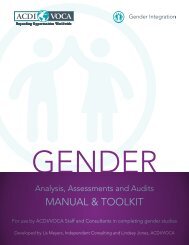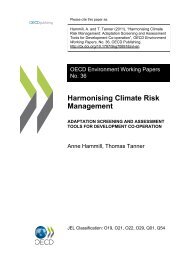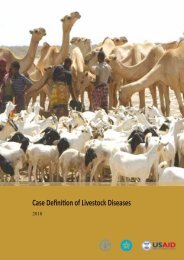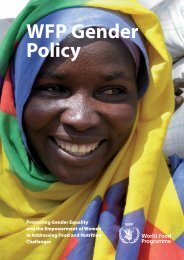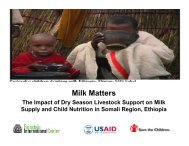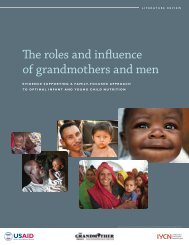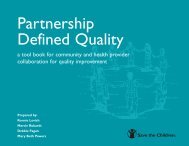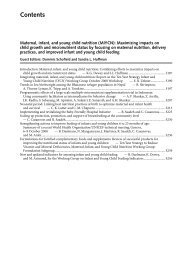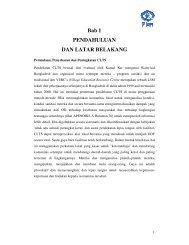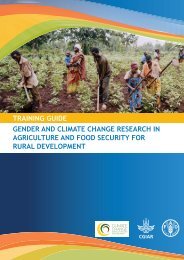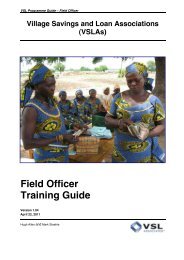Module 2. Theorethical Concepts of Gender - FSN Network Portal
Module 2. Theorethical Concepts of Gender - FSN Network Portal
Module 2. Theorethical Concepts of Gender - FSN Network Portal
Create successful ePaper yourself
Turn your PDF publications into a flip-book with our unique Google optimized e-Paper software.
Mainstreaming <strong>Gender</strong> into Water, Sanitation and Hygiene (WASH) Programs<br />
<strong>Module</strong> 2: Theoretical <strong>Concepts</strong> <strong>of</strong> <strong>Gender</strong><br />
Lesson 5: Social and <strong>Gender</strong> Analysis<br />
7 At the completion <strong>of</strong> the specified time, congratulate everybody for the<br />
lively discussion and active participation and ask them to go back to<br />
their seats.<br />
8 Explain clearly what development is in the light <strong>of</strong> the points that have<br />
been written on the board during the discussion. Emphasize that<br />
development is a positive change to better conditions in terms <strong>of</strong><br />
income, food, clothing, housing, enhancement <strong>of</strong> knowledge and skills,<br />
decision-making power, ability to make judgments, dignity etc.<br />
9 Show the participants the definition <strong>of</strong> development, the selected<br />
development indicators by sex for Rwanda and global development<br />
trends in the PowerPoint presentation.<br />
10 Ask the participants “In which areas do we want to see development in<br />
Rwanda?” After listening to two or three participants, tell them that<br />
development might be considered in several areas, including:<br />
individual, family, society, organisation/institution and state. If there are<br />
positive changes in these areas, we may consider that there is<br />
development.<br />
11 Ask participants to identify which aspects <strong>of</strong> development that they<br />
raised in their discussion relate to an individual, family, society,<br />
organization/institution or state.<br />
12 Ask participants whether any <strong>of</strong> the aspects <strong>of</strong> development affect<br />
women and men differently, and if they can explain what influences this<br />
discriminatory situation.<br />
13 Distribute the handout.<br />
14 Show participants the objectives <strong>of</strong> the session again, check that these<br />
have been achieved and ask if anyone has further questions.<br />
Review<br />
1 Ask one male and one female participant to mention indicators <strong>of</strong><br />
development in an organisation.<br />
2 Ask one male and one female participant to mention one indicator <strong>of</strong><br />
development that is different for men and for women.<br />
3 Summarise the session by showing participants the learning outcomes<br />
and checking if participants consider that these have been achieved.<br />
Learning Outcomes for Participants<br />
1 Participants will be able to describe indicators <strong>of</strong> development in an<br />
individual, family, society, organization and state.<br />
2 Participants will recognize some <strong>of</strong> the causes <strong>of</strong> differences between<br />
men and women in development.<br />
A Training Manual for Water Pr<strong>of</strong>essionals developed collaboratively by PROTOS and SNV, 01/02/2007<br />
<strong>2.</strong>3



